What has not changed in a decade is the character of Rizwan Khan.
He is complex, multi-dimensional and lovable.
In fact, his character continues to grow on you, notes Mohammad Asim Siddiqui.
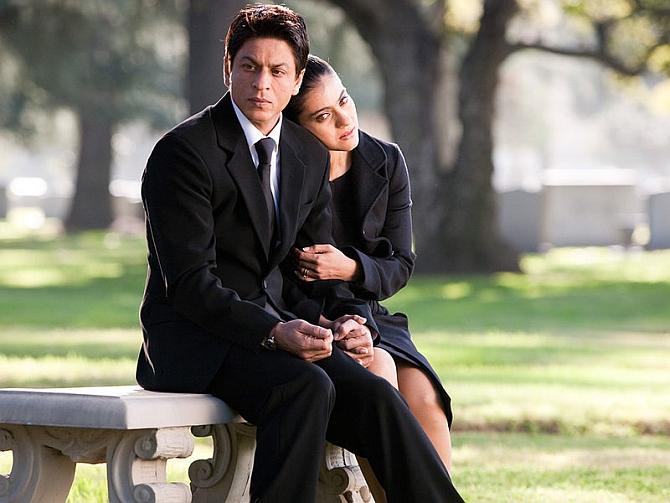
My Name is Khan was released on February 12, 2010 with a lot of fanfare, but not without some controversy.
Many things have changed since then. Many have not.
Shah Rukh Khan continues to be a big star, though Salman Khan has surged ahead.
If at all they have survived, single screen theatres are in a deplorable state everywhere in India.
People with disability still face discrimination in society.
Incidents of hate crimes continue unabated.
The right wing has occupied greater space in the world in the last decade.
Social media controls our life and trolls never had it better.
Islamophobia has increased manifold in different parts of the world.
I had many questions and queries in my mind after watching My Name Is Khan in the best single screen theatre in my city.
There were no multiplexes in my city at that time.
The situation was not different in most small cities.
Watching the film I wondered if it would have attracted the kind of crowd it did but for the controversy that preceded its release.
It may be recalled that the Shiv Sena had given a call to boycott the film because Shah Rukh Khan, the owner of the Kolkata Knight Riders, had made a statement in favour of allowing Pakistani players to play the IPL.
Calling Shah Rukh anti-national, the Shiv Sena sought the star's public apology, which, of course, never came.
Despite a good story, soulful music, beautiful songs and big actors, there was still a lot in the film with which the audience in a small town could hardly relate to .
Certainly Shah Rukh suffering from Asperger's syndrome is not likely to interest audience in a small town.
The liberal use of English in the film, that too with an American accent, is also not easy to follow for a small town audience.
Usually movies made by the likes of Karan Johar, designer romances as they have often been called, have an international audience in mind.
The subjects treated in MNIK -- no good and bad binary on religious lines, impact of 9/11 on the life of ordinary people, problem of adjustment for a man with disability -- certainly hold an appeal for a global audience.
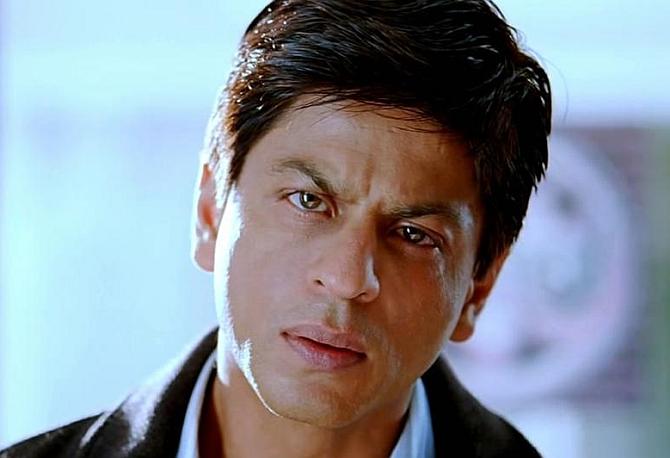
Predictably, since a substantial part of the market for big budget Hindi films belongs to the Western world -- the UK and the United States of America in particular, MNIK tries to think its material from the point of view of the West.
The film presents the American point of view clearly, unmistakably, unambiguously.
There is a mention in the film of Americans losing lives in Iraq, most of them innocent people -- journalists and reporters -- but obviously the ordinary people suffering in Iraq and Afghanistan is not anybody's concern in the film.
The movie presents things which the Western audience would understand more easily.
Right thinking, law abiding people in the West had a real concern about hate crimes after the catastrophe of 9/11.
Much to the credit of the United States, hate crimes were not only effectively checked but the punishment in such cases was also swift and stringent.
The message was clear that the United States is a country with a rule of law and it would not tolerate hate crimes on its soil.
Even today there is little ambiguity about punishing hate crimes in the United States.
My Name is Khan centres around a hate crime.
The punishment for this hate crime shown in this movie does not do any discredit to the American State and society.
In other instances of hate crimes in the film -- damaging the property of Asians, pulling off the veils of Muslim women, swearing at non-whites -- the knowledge of an average American about differences between people from different ethnicities is hardly very complimentary.
Many Americans half-seriously admit themselves to be the most parochial people in the world.
No wonder the distinction between Sikhs and Afghans or for that matter Arabs was beyond the ken of an average American in this film.
The construction of an other is a very predictable response in troubled times in most societies.
The finer distinctions of ethnicities, cultures, religions, and beliefs are swept aside at such times.
Jitesh (Vinay Pathak), a minor character in the movie, is a Hindu who proudly announces himself a Gujarati from Gandhiji's village, but his Asian looks are mistaken for an Arab by a small crowd which would like to punish all Arabs in the wake of the 9/11 attack.
Interestingly otherwise rational and good-natured individuals like Jitesh and Mandira (Kajol) articulate anti-Muslim prejudice when confronted with difficult situations in a changed environment after 9/11.
MNIK shows this change in the character of people which an American audience could find familiar.
But the silence over Afghanistan and Iraq in the movie is disturbing.
There is not a word about the unjust nature of war in Afghanistan and Iraq.
There is just no mention, even an indirect one, of civilian deaths in Afghanistan and Iraq.
The common belief that one American life is costlier than many in the world is assumed in the movie.
The American perspective is very much in evidence in Rizwan Khan's (Shah Rukh Khan) tripartite division of history.
First, there was BC, then AD, but the future generations will also remember history with reference to 9/11.
All these divisions of historical time point to the West's dominance to define and name events.
That there may be incidents of equal importance in terms of number of people killed in other parts of the world -- Rwanda, Somalia, Afghanistan, Iraq and more recently Syria -- does not matter as much for historians taking their cue from the West's lead to name and define.
And because 9/11 happens on the American soil it changes the world, even those who are not connected to it in any way.
The tragedy of 9/11 is announced in a very definitive manner in the movie.
Rizwan and Mandira are sleeping when they are awakened by a phone call of a friend informing them about the incident.
They immediately switch their television on and see images of the World Trade Centre going in flames of fire and dust.
At that very moment the camera zooms in on the Koran kept on one side of the table.
This scene tries to establish the fact that Mandira and Rizwan must rub all their sleep from their eyes.
They should be alert to many things that will inevitably happen in their life after this tragedy.
They cannot sleep properly from now on.
The foregrounding of the Koran in this scene presents a highly connotative image.
It may suggest that the act of terrorism was inspired by a (mis)reading of the Koran, but it may also mean that people should turn to the correct spirit of the Koran in such troubled times.
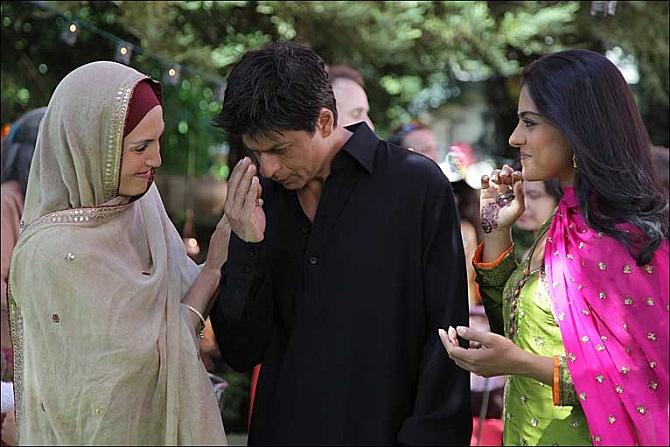
In the case of this movie, Rizwan does not turn away from the Koran.
He rather tries to find solace in the true spirit of the Koran.
When many Muslims became defensive about their religion and start changing their life style so as not to reveal their Muslim identity Rizwan was his natural self.
His sister-in-law (Sonya Jehan) takes out her hijab and becomes somebody else in her own eyes.
The Muslim couple he meets on his bus journey feels very defensive about displaying their nod for prayers in public.
When Rizwan offers his prayers in full view of a curious Western crowd, the Muslim gentleman traveling with him cautions him by saying that prayer is offered at opportune moments and time, Rizwan silences him by telling him that in offering a prayer only the right intention of a believer matters.
Rizwan tries to offer prayers even in his torture chamber while he is in the FBI's custody though this torture chamber is supposed to take away all his dignity.
Rizwan also informs at another time in the movie that when one innocent person dies all of humanity dies with him.
Significantly, this view is expressed with reference to the death of an American civilian.
To its credit, MNIK does provide a hint of inequality and race prejudice in American society in the episode showing a Katrina-like flood.
Rizwan's plight is also the plight of an ordinary person.
An ordinary person cannot hope to meet the head of State in normal circumstances.
The head of State is just inaccessible.
This is unfortunately true about both a monarchy and a democracy.
And it is equally true about a country which prides on its democratic institutions.
Rizwan's situation is worse because he is a Muslim who wants to meet the president of the United States in the post 9/11 world.
Rizwan Khan's definition of his self is full of irony directed at the common perception about Muslims in the post 9/11 world which legitimised Islamophobia almost round the globe.
Only a person suffering from some ailment would define himself in negative terms: 'My name is Khan and I am not a terrorist.'
You don't say my name is this and I am not a plumber/electrician/driver/ student/teacher/writer.
Yet this is precisely what Rizwan does in a major part of the movie.
The irony of Muslims's lives in the post 9/11 context is that the onus is on them to prove their non-terrorist identity.
Either they are terrorists or not. They cannot forget the 'T' word in the changed context. There is some unintentional irony in the Obama lookalike American president's remark when he addresses Rizwan by saying 'Your name is Khan and you are not a terrorist.'
It appears a kind of favour that somebody does not consider Rizwan Khan a terrorist.
The onus on Muslims is also to act as good citizens in whichever country they are living.
They must not view the world in simple Jews/Hindus/ Christians versus Muslims of the world terms.
This is what extremists like Faisal Rahman (Arif Zakaria) do in the film.
Muslims like him play into the hands of theorists like Samuel Huntington who famously talked about a clash of civilisations.
It is not only downright wrong, but also dangerous if we believed in a civilisational clash.
The world, according to the movie, is not divided into followers of different religions, but into good and bad people.
There are good people like Rizwan Khan and Mandira and bad people like Faisal Rahman.
Dr Rahman would have been bad and Khan and Mandira good regardless of their faith.
What has not changed in a decade is the character of Rizwan Khan.
He is complex, multi-dimensional and lovable. In fact, his character continues to grow on you.
However, there is something significant which has changed since the release of My Name is Khan.
Shah Rukh Khan could speak his mind on issues the film highlighted a decade ago. Can he now?
Mohammad Asim Siddiqui teaches English at Aligarh Muslim University.









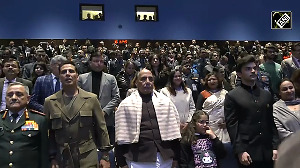
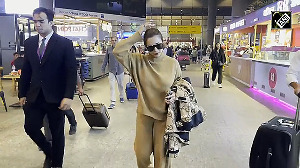
 © 2025
© 2025